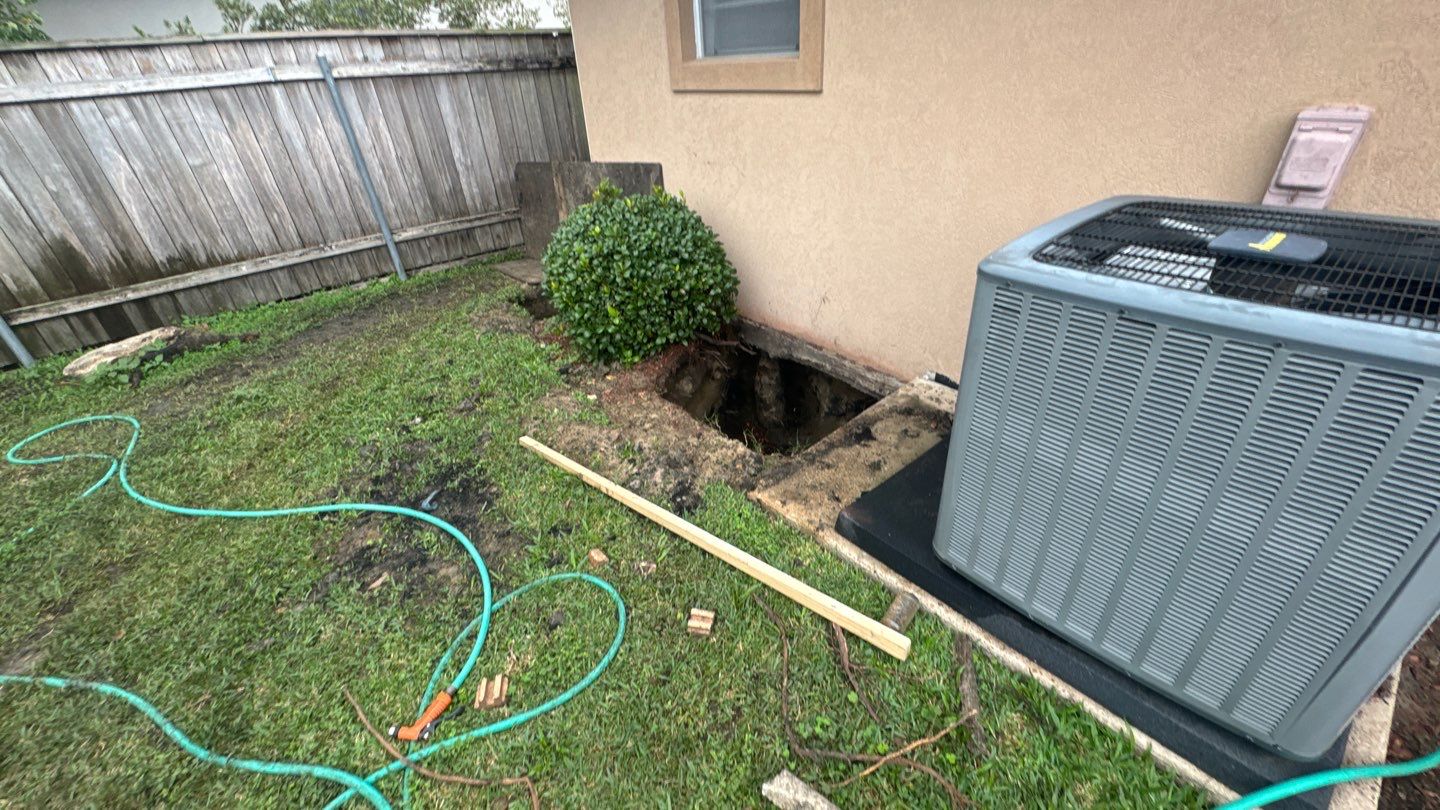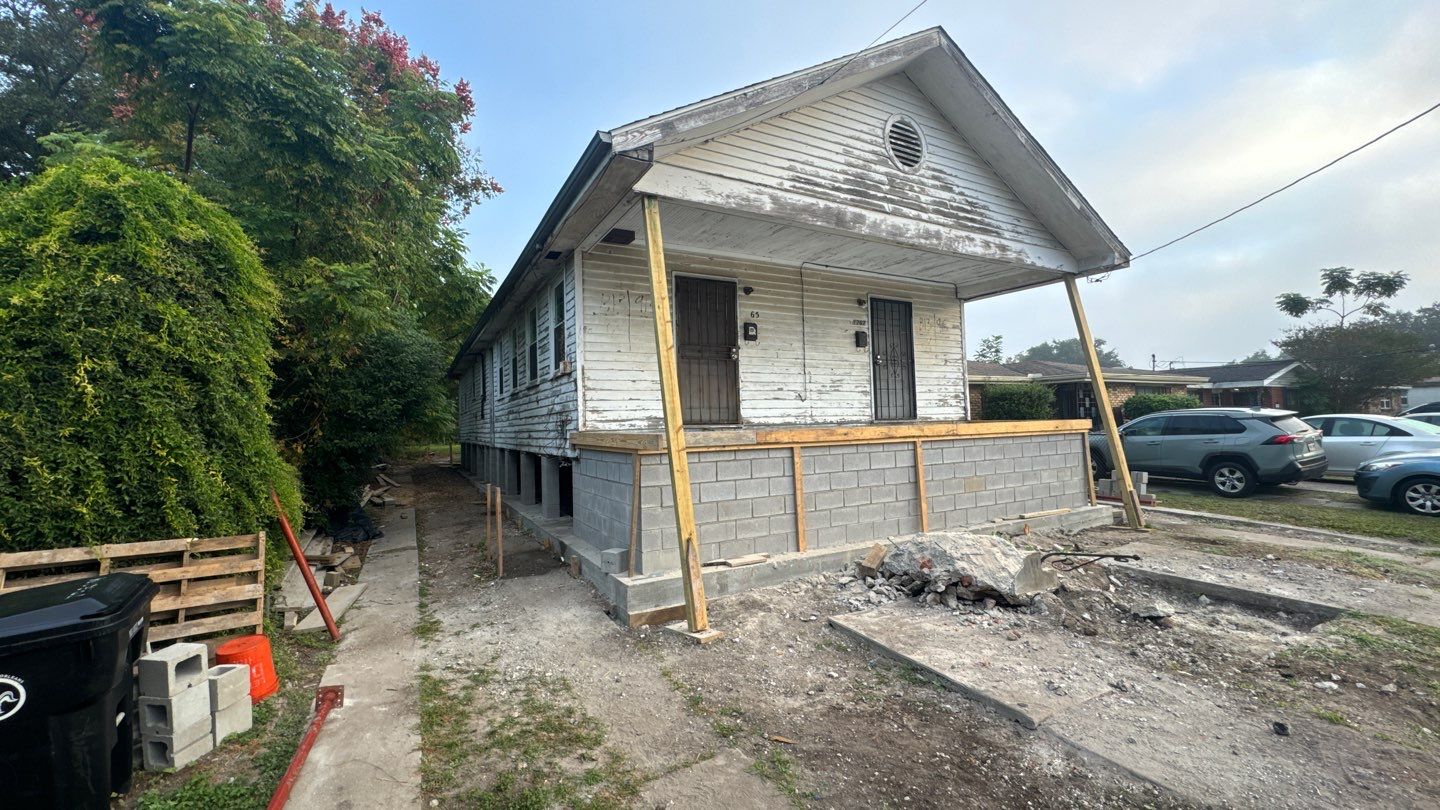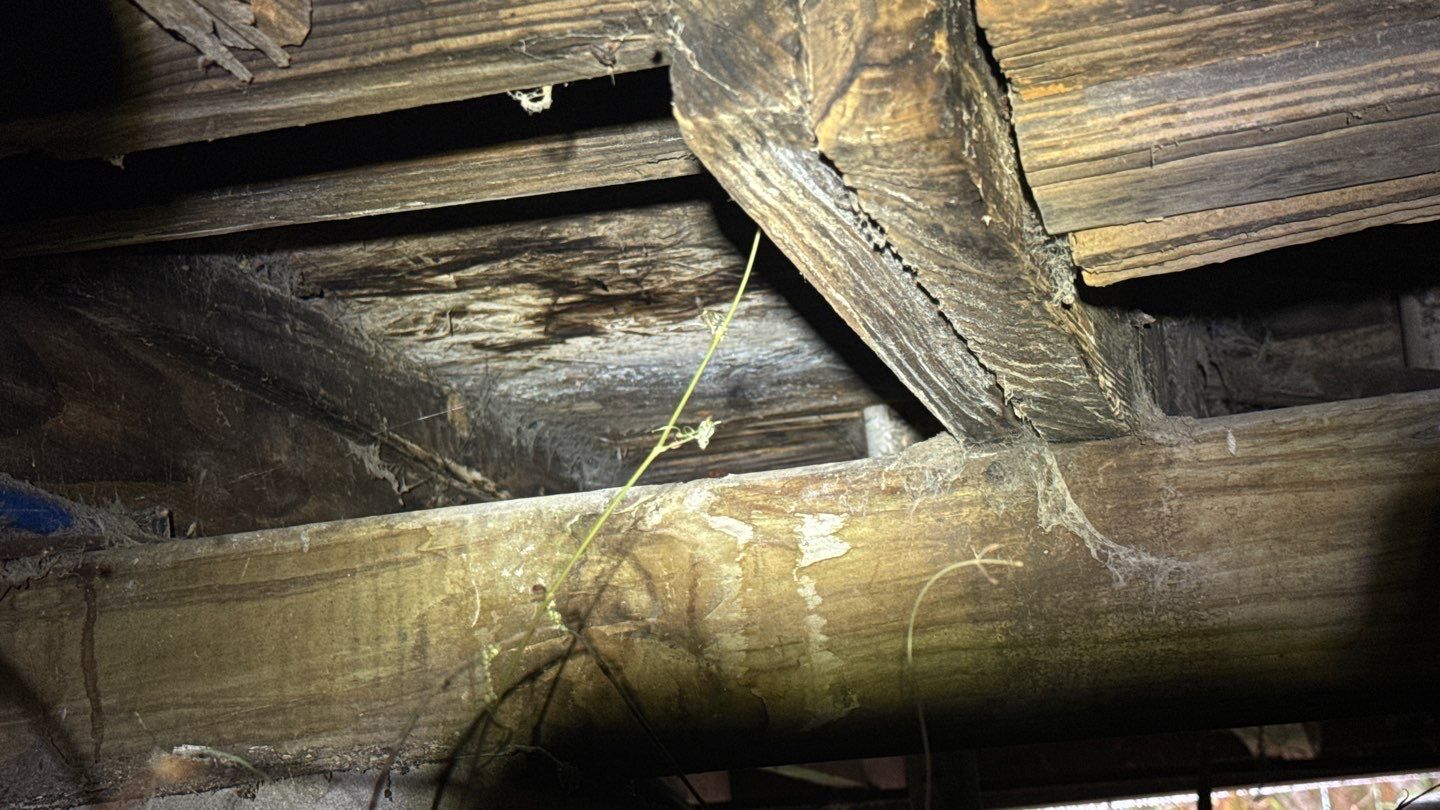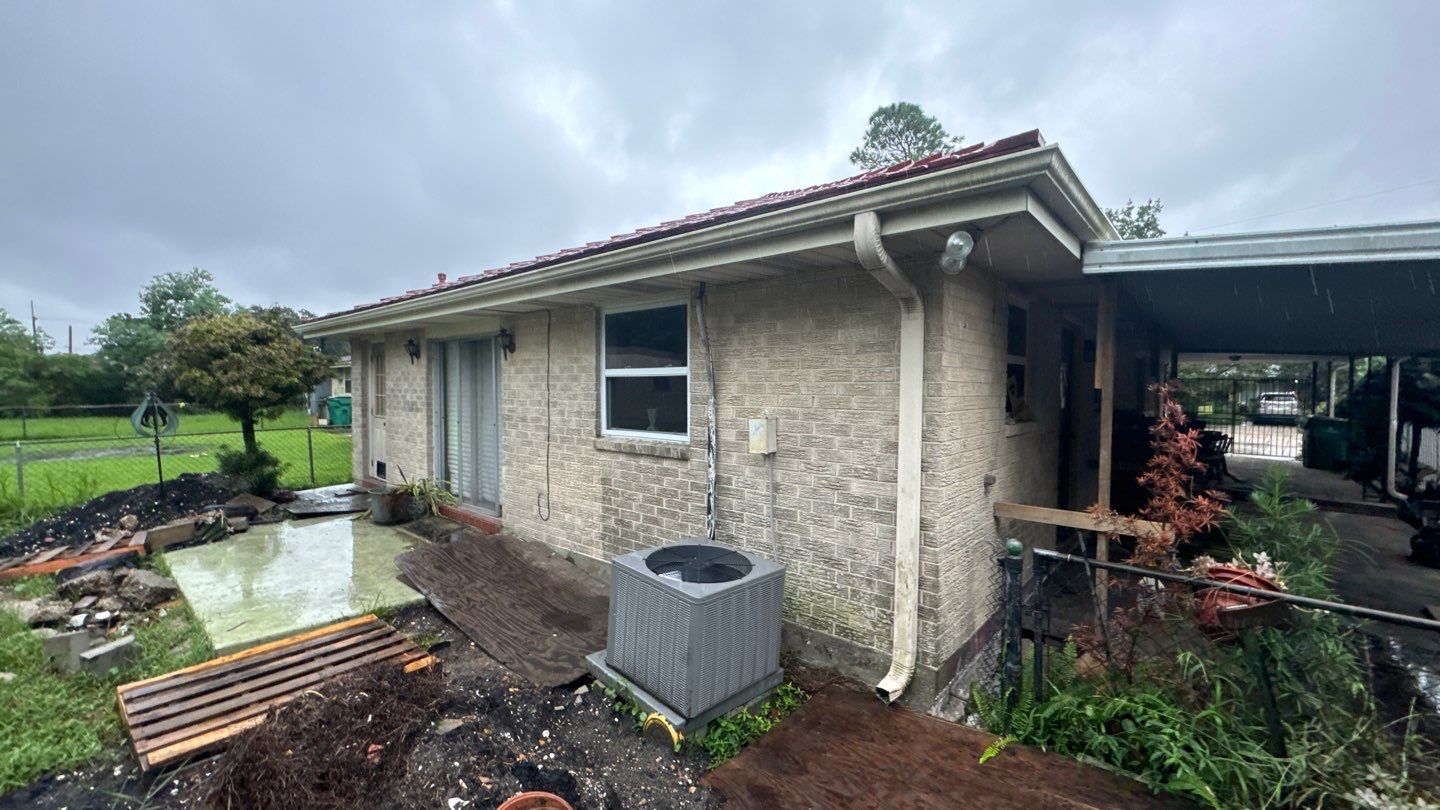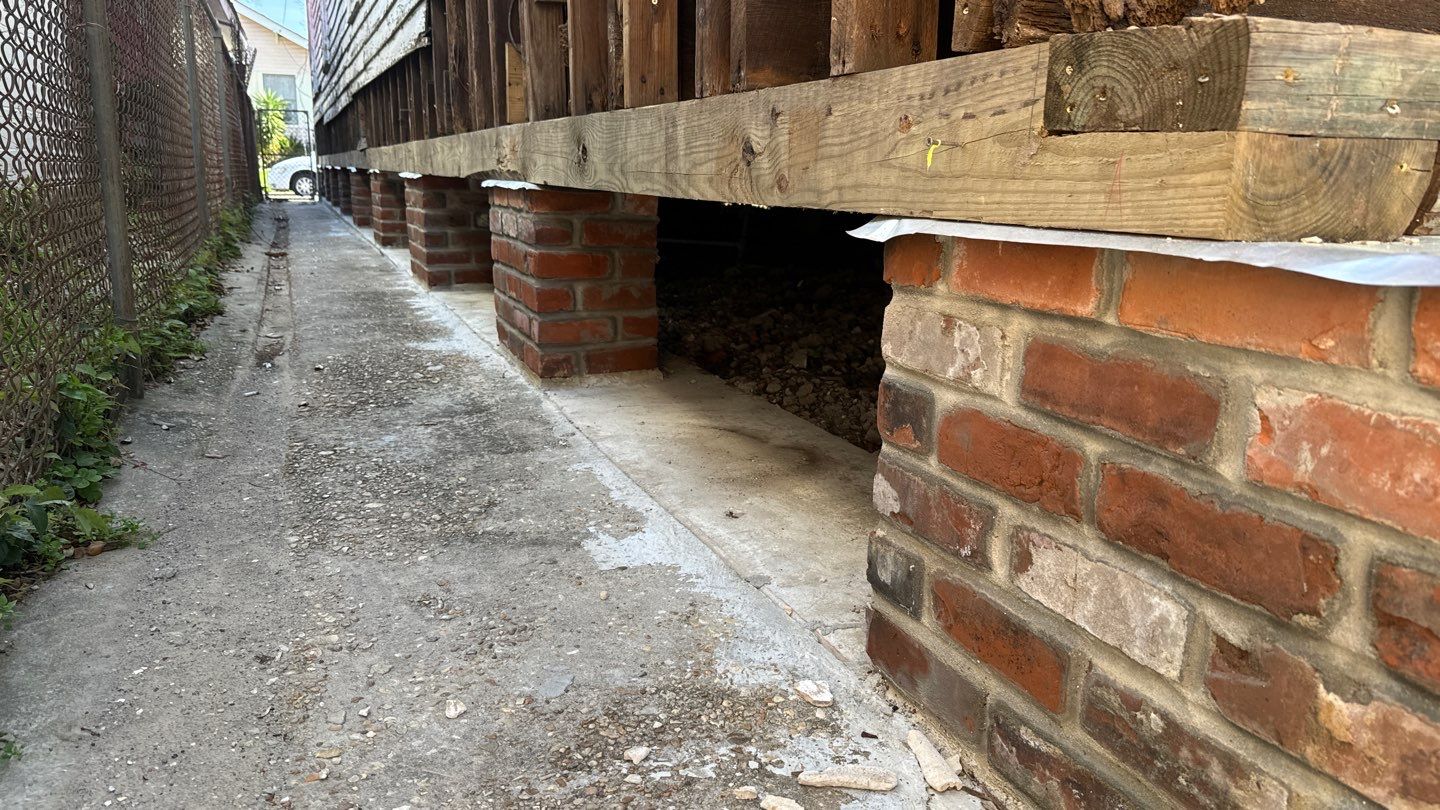
The Ultimate Guide to House Raising and Home Elevation in New Orleans
Home ElevationHome Raising
24-Sep, 2024
House raising and home elevation in New Orleans has become an essential service due to the city’s geography and susceptibility to flooding. This guide will cover the critical aspects of house raising, from understanding the process to selecting a qualified contractor. New Orleans, known for its vibrant culture and unique architecture, faces particular challenges related […]
House raising and home elevation in New Orleans has become an essential service due to the city’s geography and susceptibility to flooding. This guide will cover the critical aspects of house raising, from understanding the process to selecting a qualified contractor.
New Orleans, known for its vibrant culture and unique architecture, faces particular challenges related to flooding and hurricanes. As sea levels rise and storms become more intense, homeowners in flood-prone areas often need to raise their houses to protect against future water damage. Whether you’re considering raising your home due to a recent flood event or are proactively safeguarding your investment, this guide will provide all the details necessary to make an informed decision.
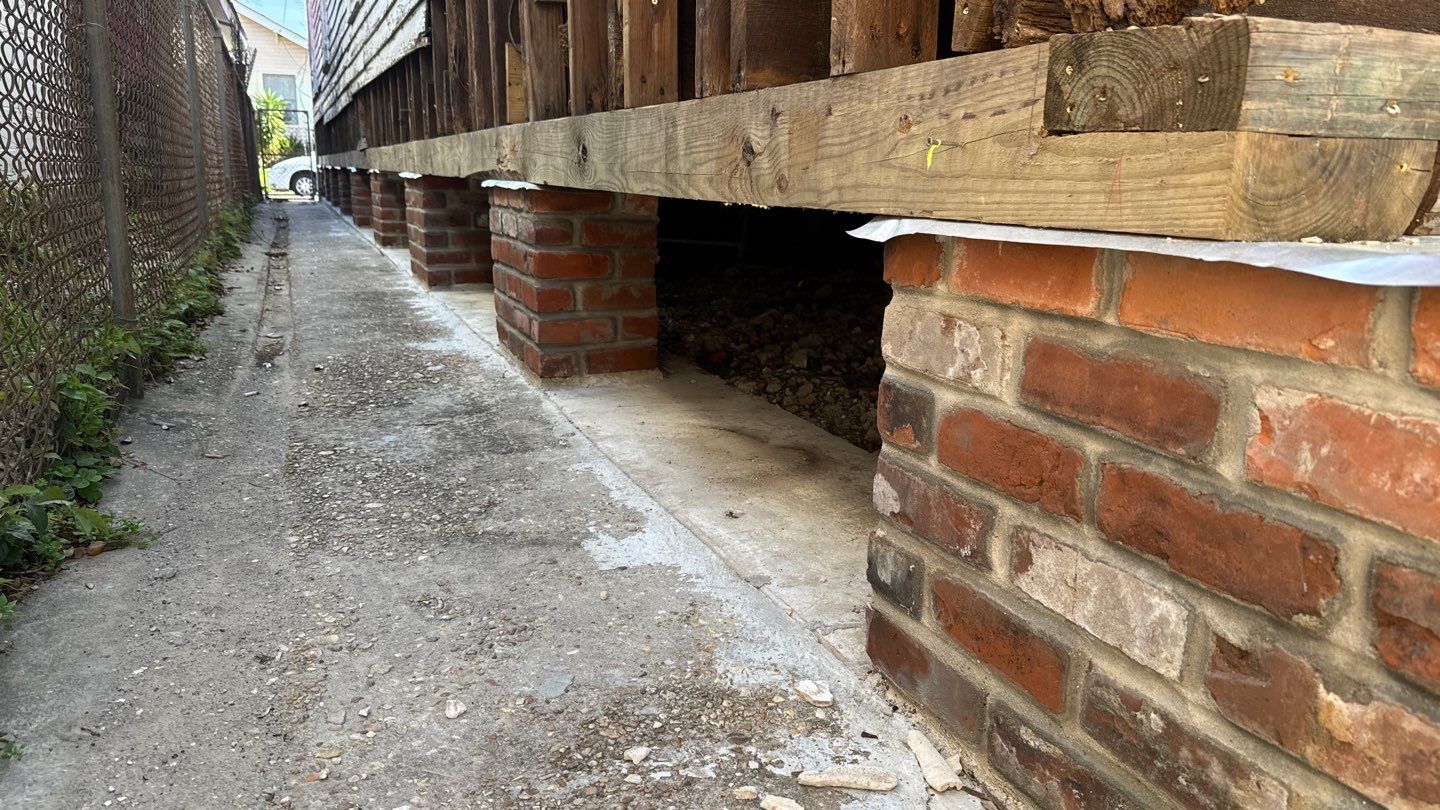
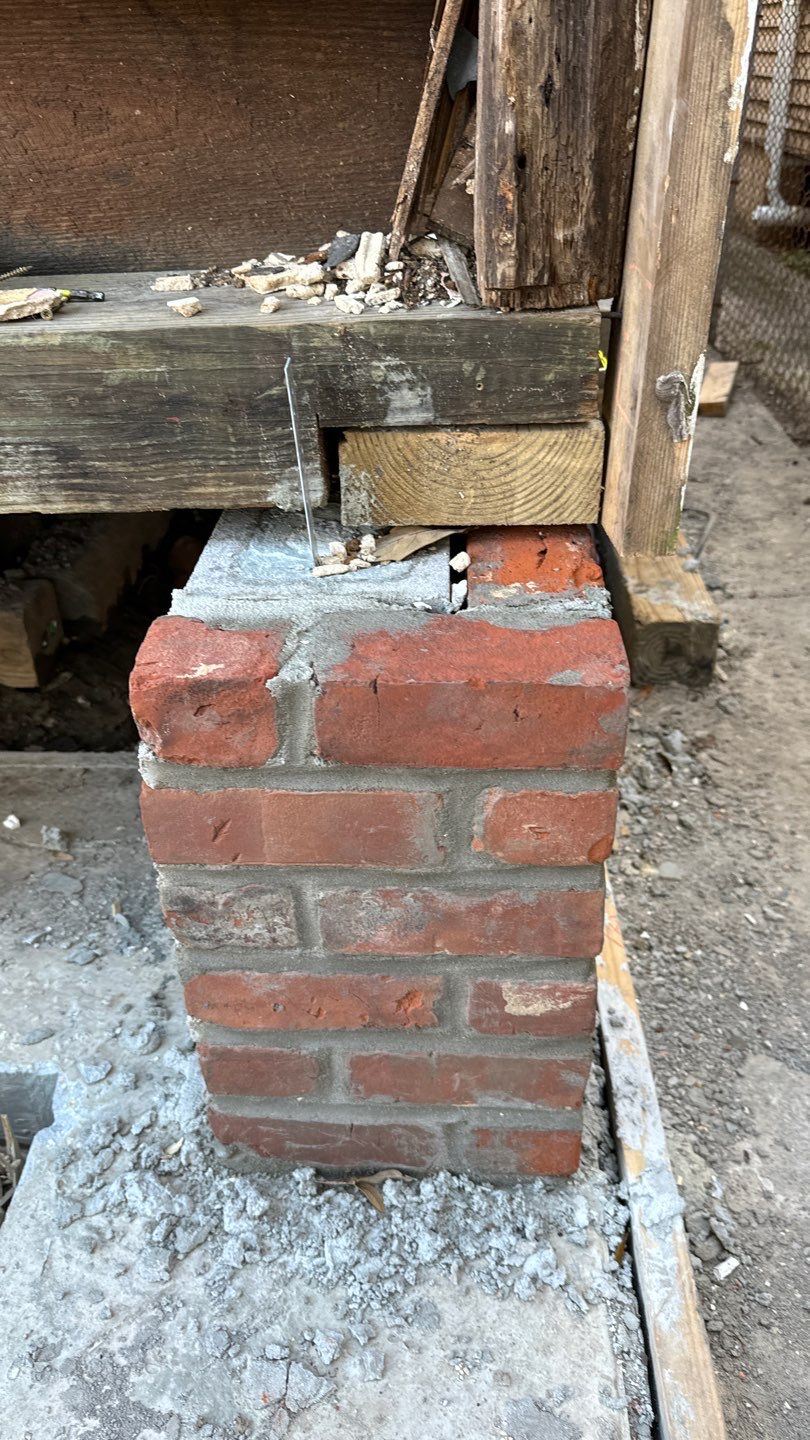
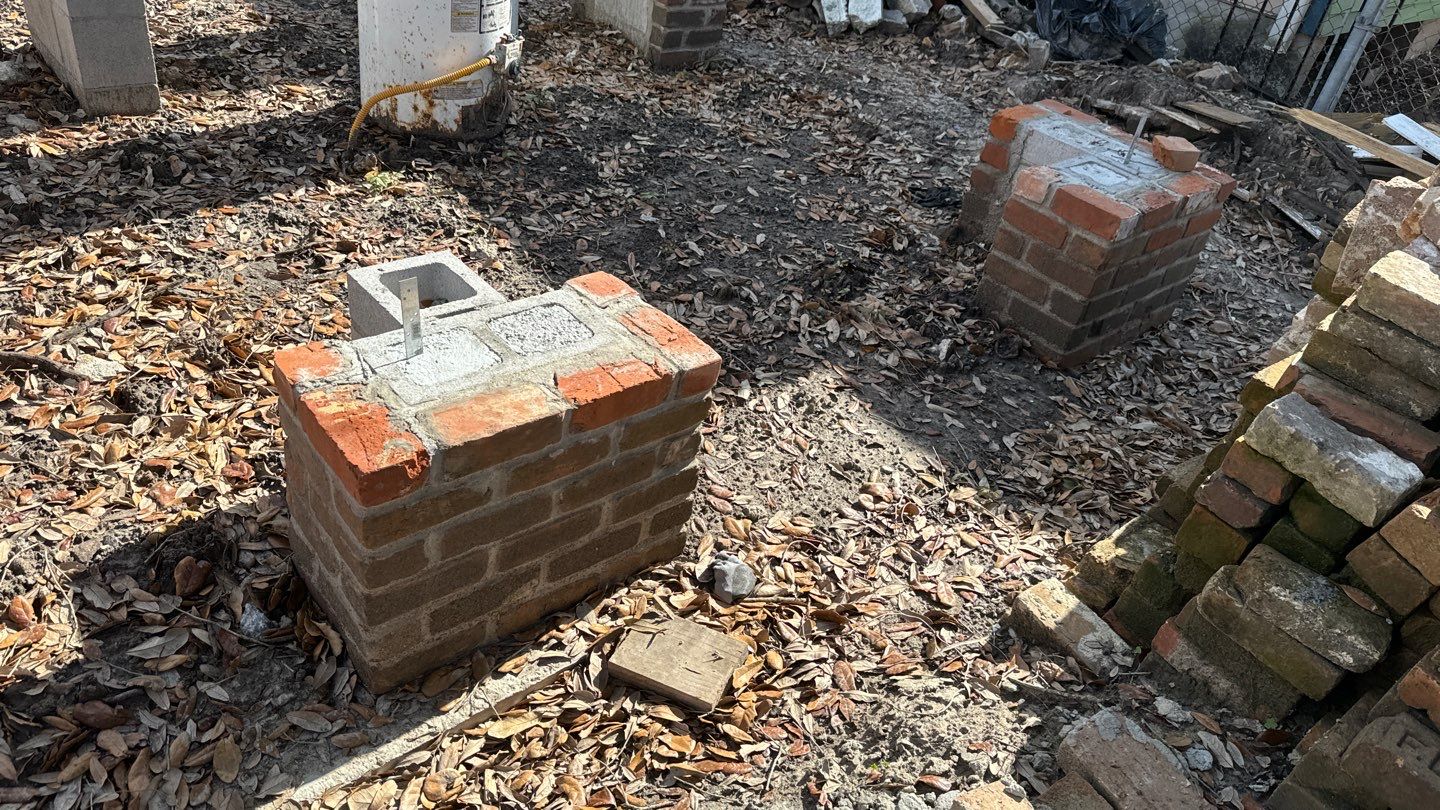
Why House Raising and Home Elevation Is Crucial in New Orleans
New Orleans sits below sea level, making it highly vulnerable to flooding. The city’s elaborate levee system and drainage infrastructure help mitigate flood risks, but when hurricanes or intense rainstorms hit, floodwaters can still devastate homes. As a result, many homeowners opt for house raising (also known as home elevation), which lifts a structure above its original foundation to a higher elevation. The Federal Emergency Management Agency (FEMA) encourages home elevation, particularly in high-risk flood zones. In some cases, FEMA even offers grants or financial assistance to help cover the costs. Additionally, raising your home can reduce flood insurance premiums, improve safety, and enhance property value.The Process of House Raising
Step 1: Initial Assessment and Planning
Before lifting a house, contractors will assess your property to determine the best course of action. This includes evaluating the current foundation, determining the necessary elevation level (often dictated by FEMA’s Base Flood Elevation requirements), and assessing the overall condition of your home.Step 2: Foundation Preparation
A critical part of house raising is reinforcing or reconstructing the foundation. If the original foundation is weak or damaged, it may require repairs or a full rebuild to support the new elevated height. The type of foundation depends on the soil condition, home structure, and elevation needs, but common options include slab, crawl space, and pier foundations.Step 3: House Lifting
Using hydraulic jacks and steel beams, contractors will lift the house slowly and carefully. The building is elevated to the desired height, usually several feet above the floodplain or to meet local elevation standards.Step 4: Foundation Construction or Elevation
Once the home is lifted, the new foundation is built or extended. For homes already on piers, the foundation is raised with blocks or additional piers to support the structure at its new height. For slab foundations, new columns are constructed to support the building.Step 5: Lowering the Home and Final Adjustments
After the new foundation is set, the house is lowered onto it. Contractors will then reconnect utilities, repair any structural components that may have shifted, and ensure the home is secure.
Benefits of House Raising in New Orleans
1. Flood Protection
The primary advantage of elevating a home in New Orleans is protection against flooding. By raising the house above the base flood elevation (BFE), you minimize the chances of future flood damage, which is critical in a region prone to severe weather events.2. Lower Flood Insurance Premiums
Homes built or raised above the BFE are considered lower-risk by insurance companies. As a result, homeowners can save thousands of dollars annually on flood insurance premiums.3. Increased Property Value
House raising can increase the value of your property. Buyers in flood-prone areas will appreciate the added protection and may be more inclined to invest in a home that is better equipped to withstand storms and floods.4. Qualify for FEMA Grants
Through FEMA’s Hazard Mitigation Assistance (HMA) program, homeowners may be eligible for financial assistance to elevate their homes. These grants can help cover the costs of raising your house and reduce the overall financial burden.
How to Choose a Licensed House Raising Contractor in New Orleans
Selecting the right contractor is crucial for a successful house-raising project. Here’s what to consider when making your choice:1. Ensure Licensing and Insurance
In Louisiana, contractors are required to be licensed to perform house raising and elevation work. You can check the Louisiana State Licensing Board for Contractors to confirm that a contractor holds the appropriate licenses. Additionally, ensure they have the proper insurance, including general liability and worker’s compensation coverage, to protect against any accidents or damages that may occur during the project.2. Experience and Expertise
House raising is a complex and specialized process that requires experience. Ask prospective contractors about their experience with home elevation, particularly in the New Orleans area. Local contractors will be familiar with the unique challenges posed by the region’s soil conditions, flood regulations, and weather patterns.3. Reviews and References
Before hiring a contractor, do your homework by checking online reviews and asking for references from past clients. A reputable contractor will have positive testimonials and be willing to provide references. Speaking directly with previous clients can give you insight into the quality of work, adherence to deadlines, and communication throughout the project.4. Detailed Contracts and Cost Estimates
Request a written contract that outlines the scope of work, timeline, and total cost. A detailed contract will prevent misunderstandings and ensure that both parties are clear on the expectations. Be cautious of contractors who offer extremely low bids, as this could indicate subpar materials or rushed work.5. Familiarity with Local Regulations and FEMA Guidelines
Home elevation projects in New Orleans must comply with local zoning and building codes, as well as FEMA’s flood elevation guidelines. Hire a contractor who has experience navigating these regulations and can ensure your project meets all necessary requirements.
Helpful Tips for House Raising in New Orleans
Tip #1: Plan Ahead for Temporary Living Arrangements
During the house raising process, you may need to vacate your home temporarily. Plan ahead by arranging for temporary housing and consider the estimated timeline provided by your contractor.Tip #2: Consider Future-Proofing Your Home
When raising your house, consider other improvements that will protect it from the elements. Adding hurricane-proof windows, upgrading your roof, and ensuring your drainage systems are functional can enhance the longevity and resilience of your home.What to Expect After House Raising
Reconnecting Utilities and Final Inspections
Once your home is elevated, all utilities—electricity, plumbing, gas—must be reconnected. Your contractor will coordinate these efforts with local utility companies and arrange for necessary inspections to ensure the house is safe for habitation.Landscaping Adjustments
House elevation often results in changes to your landscaping. Depending on how high the house is lifted, you may need to add stairs, ramps, or retaining walls to accommodate the new elevation.Conclusion: Elevate and Protect Your New Orleans Home
House raising and home elevation are critical steps for protecting homes in New Orleans from flood risks. By understanding the process and working with a qualified contractor, you can safeguard your investment, reduce insurance costs, and increase your property’s value. Selecting a licensed and experienced contractor will ensure your project is completed safely, efficiently, and in compliance with local regulations. For more information on home elevation in flood-prone areas, visit FEMA’s Homeowner’s Guide to Retrofitting and the Louisiana State Licensing Board for Contractors.
Brent Moran
Helpful Tips, Real Stories & Home Repair Wisdom


